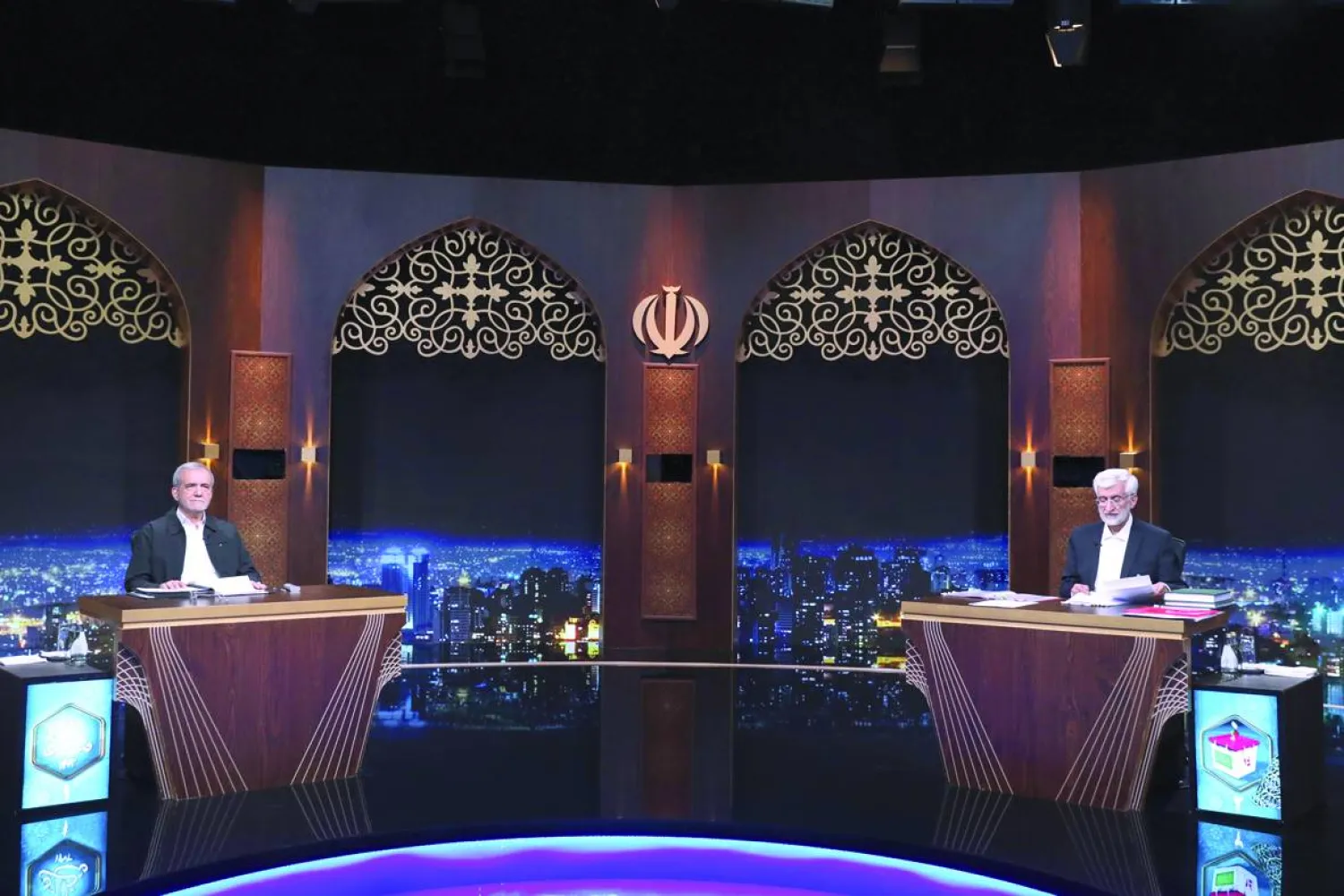Iranian presidential hopefuls Masoud Pezeshkian and Saeed Jalili held their final campaign rallies on Wednesday in preparation for Friday's snap election runoff. Around 61 million Iranians are eligible to vote on who will succeed the late president Ebrahim Raisi, who died in a helicopter crash in May, said AFP.
In a bustling Tehran prayer hall, ultraconservative Saeed Jalili has rallied fervent supporters ahead of Friday's runoff presidential vote, while his reformist rival Masoud Pezeshkian stirred up a crowd in a nearby stadium.
The two candidates held their final campaign rallies late Wednesday, after leading the first-round vote in snap elections to succeed president Ebrahim Raisi who died in a May helicopter crash.
Chants of "All Iran says Jalili" echoed as thousands of supporters of the hardline former nuclear negotiator gathered at the Grand Mosalla mosque in central Tehran, buzzing with excitement.
Jalili promised "strength and progress" if elected, as posters of the late ultraconservative Raisi adorned the walls, bearing the slogan: "A world of opportunities, Iran leaps forward."
At an open-air stadium elsewhere in the capital, Pezeshkian made the case for "unity and cohesion", his supporters' chants invoking another former president – the reformist Mohammad Khatami who has endorsed their candidate.
"Long live Khatami, long live Pezeshkian!" called the spirited crowd, waving green flags adorned with the reformist candidate's "For Iran" slogan.
'Follow Raisi's path'
At the prayer hall, women draped in black chadors sat in a designated section, separated from the men. But all burst into rapturous applause as Jalili made his entrance.
"We are at a historical moment," he told the cheering crowd, urging voters to head to the polls on Friday.
Only 40 percent of Iran's 61 million eligible voters turned up at the polls last week – representing the lowest turnout in any presidential election since the 1979 Iranian Revolution.
To 40-year-old Maryam Naroui, Jalili is "the best option for the country's security".
A 39-year-old housewife who declined to give her name said he "is honest and will follow Raisi's path".
Jalili, known for his uncompromising anti-West stance, has staunchly opposed moves to restore a landmark 2015 deal with world powers which imposed curbs on Iran's nuclear activity in return for sanctions relief.
He has argued that the deal, which collapsed in 2018 when the United States withdrew from it, had violated all of Iran's "red lines" by allowing inspections of nuclear sites.
As he spoke, some supporters interjected with chants denouncing former president Hassan Rouhani, whose government had negotiated the accord.
If elected, Jalili told the rally, "we will improve the strength and progress of the country".
'Hope
Pezeshkian, who has called for "constructive relations" with Western governments to end Iran's "isolation", has won endorsements from the moderate Rouhani and from reformist figures including ex-president Khatami.
"We can manage our country with unity and cohesion," Pezeshkian told his cheering supporters.
"I will resolve internal disputes to the best of my ability," he said.
Pezeshkian, who has vowed to "fully" oppose police patrols enforcing the mandatory headscarf and called to ease long-standing internet restrictions, was speaking before a crowd of women in colorful hijabs, mingled with others, draped in traditional black chadors, alongside men.
The headscarf issue has become particularly contentious following mass protests following the 2022 death in custody of Mahsa Amini.
Since the months-long nationwide unrest, women have increasingly flouted the code. But police in recent months have also toughened controls.
Sadegh Azari, a 45-year-old working in insurance, said: "I believe if Pezeshkian wins... the people will have hope for the future."
Iran Candidates Pezeshkian and Jalili Hold Final Rallies ahead of Presidential Runoff

In this photo made available by Iranian state-run TV, IRIB, Iranian presidential candidate reformist Masoud Pezeshkian, left, and hard-line candidate Saeed Jalili attend a debate at the TV studio in Tehran, Iran, Tuesday, July 2, 2024. (Morteza Fakhri Nezhad/IRIB via AP)

Iran Candidates Pezeshkian and Jalili Hold Final Rallies ahead of Presidential Runoff

In this photo made available by Iranian state-run TV, IRIB, Iranian presidential candidate reformist Masoud Pezeshkian, left, and hard-line candidate Saeed Jalili attend a debate at the TV studio in Tehran, Iran, Tuesday, July 2, 2024. (Morteza Fakhri Nezhad/IRIB via AP)
لم تشترك بعد
انشئ حساباً خاصاً بك لتحصل على أخبار مخصصة لك ولتتمتع بخاصية حفظ المقالات وتتلقى نشراتنا البريدية المتنوعة







